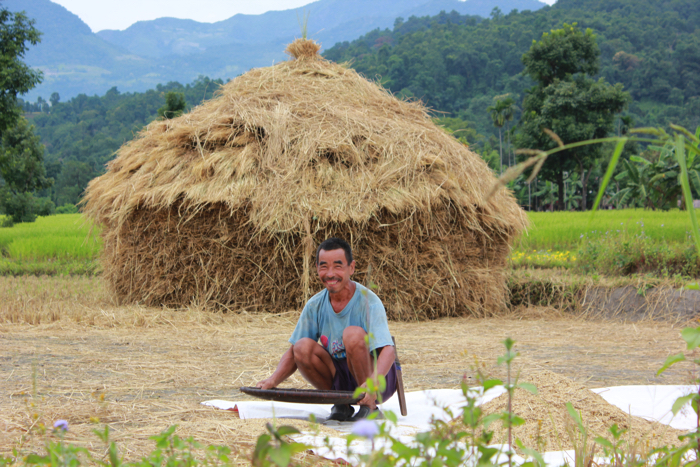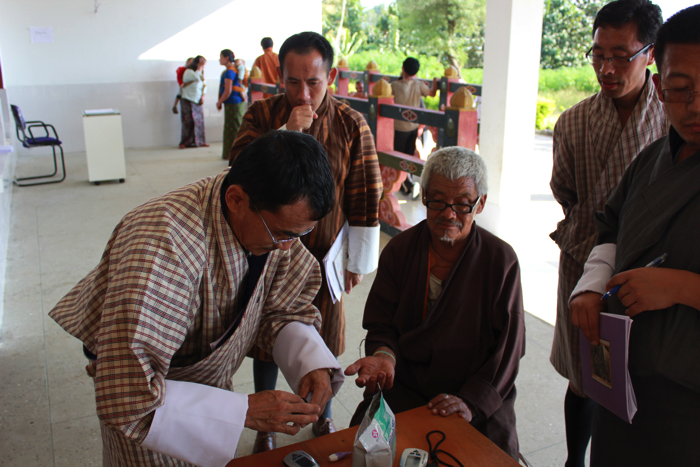- Project Leader : Sakamoto Ryota (Kyoto University, Hakubi Center for Advanced Research)
- Collaborators : Matsubayashi Kozo (Kyoto University, Center for Southeast Asian Studies)
- : Jamtsho Yenten (Ministry of Health, Bhutan, Department of Medical Services)
- : Tashi Phuntsho (Ministry of Health, Bhutan, Department of Medical Services)
- : Yeshi Wangdi (Ministry of Health, Bhutan, Department of Medical Services)
Outline of Research
We would like to conduct Training of Trainers (ToT) for community dwelling elderly people in the Kingdom of Bhutan. There, we would like to share information about health check-up system of the elderly based on “Guidelines for communitybased medical check-ups for the elderly”, which we made in cooperation with health staff of the Khaling Basic Health Unit and the Ministry of Health, Bhutan. In the ToT, we will see the patients together and observe together the local needs. We would like to discuss with each other how to improve the methods and supply health services for the better health of the communities.
Description
The purpose of this research is to understand how to maintain the health of the elderly in the communities. According to the Royal Government of Bhutan, the number of the aged 65 years or over was 29,745 in 2005, and the number will likely double by 2030. Adults surviving into late life suffer from high rates of chronic illness. It has been reported that 80 percent have at least one, and 50 percent have at least two chronic conditions. Given the high prevalence and impact of chronic health problems among the elderly, effective and efficient care to address these problems is increasingly important in order to maximize both the quantity and quality of life for the elderly. We have to follow both global evidences and local needs. In Bhutan, we have discussed with people in Bhutan and now mainly focus on the following 13 items: disability, dementia, depression, diabetes, dental problem, isolation, hypertension, addiction, visual problem, ear problem, fall, urinary incontinence, and nutrition. The ToT will be a significant opportunity to share information about health of the elderly among health staff from local to central levels.
 Samdrup Jongkhar, the Kingdom of Bhutan |
 Training of trainers for community-based medical care for the elderly |
